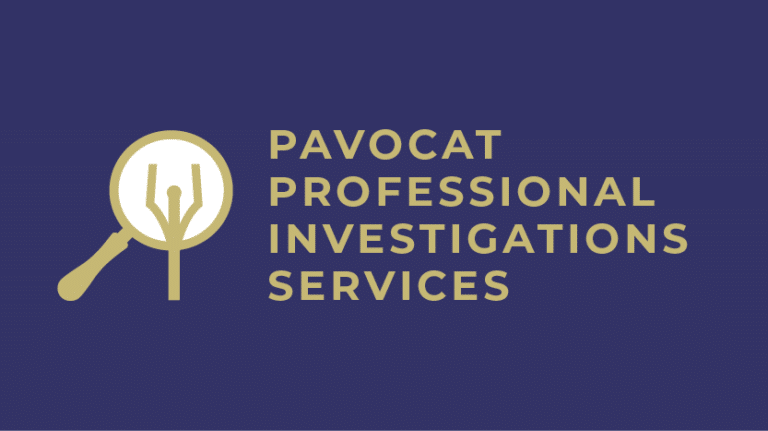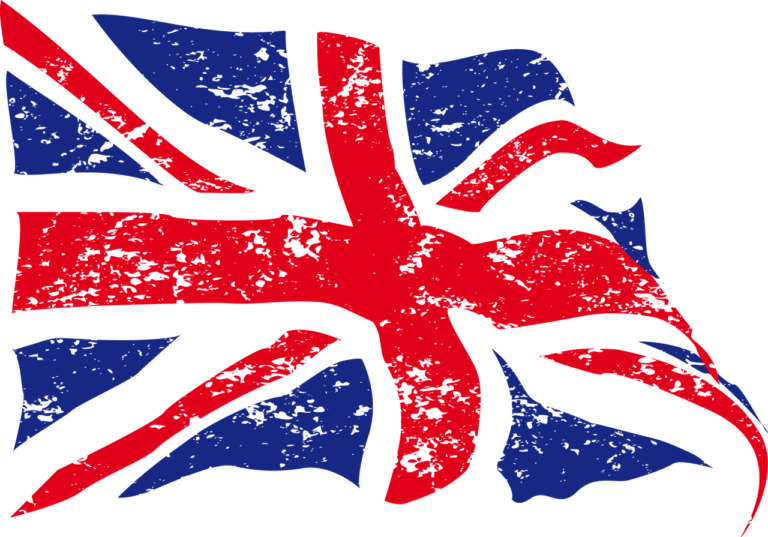Infrastructure in Africa is critical to the economic prosperity of the continent. Poor infrastructure prevents economic growth and contributes to economic and social challenges. A lack of suitable infrastructure discourages foreign businesses from investing and slows inward investment.
Infrastructure is a critical component to ensuring Africa’s sustainable development and long-term growth. The African Development Bank has estimated that infrastructure investment could be as much as $170 billion by 2025. There is currently an estimated shortfall of approximately $100 billion per annum.
In a recent report¹, the causes of poor infrastructure were found to include a lack of capacity, poor planning and oversight, inadequate legal structure, lack of funding, dependency on grants, and corruption. This report refers to a single municipality in South Africa, but its application goes far wider because it illustrates how certain factors, most notably corruption, undermine effective development in Africa, which in turn leads to the prolongation of poverty, human rights challenges, and a lack of security.
African governments face long-term challenges in developing infrastructure. This includes debt sustainability challenges, where finding access to development finance is expensive and difficult to secure. “Debt trap diplomacy” on the part of nations like China through the Belt and Road Initiative is leaving a legacy that could take a generation or more to overcome.
Infrastructure in Africa: The Chinese Belt and Road Initiative
China’s Belt and Road Initiative (“BRI”) is a strategy that seeks to connect Asia, Africa, and Europe via a series of land and maritime networks. It aims to increase global trade through its network, and stimulate economic growth. It aims to connect infrastructure projects like the maritime silk road, and projects in Central Asia and Africa.
The BRI was first proposed by President Xi Jinping in 2013. BRI is cited as a means for China to develop an interdependent market that allows it to develop its political influence and economic power. With the right conditions, it would allow China to create a high-technology economy.
There are, however, significant drawbacks. Chinese banks are backed by the Chinese Government. While they are lending on commercial rather than concessionary terms, they are still lending at rates that Western banks are unable and unwilling to compete with. This lending means that many African nations have overstretched and increased debt levels to a worrying extent.
Building physical and digital infrastructure benefits nations, but the lending practices of the Chinese and subsequent indebtedness contribute to economic instability. These lending practices also mean that some large scale infrastructure projects are unable to pay for themselves, adding to levels of indebtedness in host nations.
For example, it is reported that concerns are rising that Kenya will be unable to maintain repayments to China for its $4.7 billion railway which has been plagued with controversy over corruption, procurement, and labour practices. In its first three years of operation, the project has lost $200 million. It has become so controversial that China has refused to build the remaining section of the railway.
In fact, Mombasa Port serves as collateral for the project. The operating contract was awarded to Afristar, a subsidiary of Chinese state-owned China Road and Bridge Corporation, which has in the past been sanctioned by the World Bank Group for engaging in sanctionable practices in the Philippines.
Debt distress will boost China’s geopolitical leverage over host nations should those nations default or be forced to renegotiate terms on BRI finance. Whilst China is unlikely to seize “BRI” infrastructure, the possibility may force host nations to submit to Chinese strategic or political demands.
The Covid-19 pandemic has added to financial issues in host nations. At a time when healthcare costs have risen dramatically and government revenues have fallen, “BRI” projects failing to pay for themselves have added to economic pressures. Many African host nations have struggled to keep up with “BRI” payments as a result.
These dual challenges make it very difficult for nations to ‘bounce back’ to pre-Covid levels, and they face an uncertain future in the face of infrastructure investment that in some cases is not delivering, and is a drain on public finances.
If the World Bank and the IMF are to put the global economy back onto a stable footing and ready for sustainable growth, they must confront the issues surrounding the Chinese Belt and Road Initiative head on.²
Russian influence in Africa
While China has opted to project power through infrastructure investment, the Russian Federation has opted for a different approach. It is not a nation that can finance $multi-billion projects, but it can rely to some extent on its Soviet-era relations where African struggles for liberation were often supported, covertly or otherwise, by the Soviet Union.
Geopolitical influence in Africa is a key part of Russia’s foreign policy. While Western governments have been preoccupied with the Chinese “BRI” and its impact and influence, they have shown less interest in the activities of Russia. The Kremlin has, as a result, been able to conduct its activities with little interference from the US or European nations. In fact, Russian-backed mercenaries forced the French military presence in Mali out and continued to stand by Mali at the UN, voting against ECOWAS sanctions.
A measure of the success of Russian activity can be taken from the response to the war in Ukraine. While Western nations have condemned the Russian invasion, subsequent operations, and alleged war crimes, the response from certain African nations has been less direct or neutral.
Russia has been able to rely heavily on Soviet-era ties for influence, while other nations have chosen to remain neutral if they can. This has begun to change during 2022, and voting patterns at the UN demonstrate the slowly changing views of African nations on the war in Ukraine. Even Mali has now turned to neutrality at the UN.
The Soviet-era anti-imperialist legacy stands Russia in good stead with some African nations, something that the Kremlin is very aware of. Russia has positioned itself as the natural ally to African states, as a friend that doesn’t meddle in their affairs and one that respects national sovereignty. It contrasts this view with that of “meddling Western nations”.
Documents leaked in Russia in 2019 demonstrate that Russia should support the development of African self identities and encourage anti-imperialist rhetoric. By anti-imperialist, read anti-Western.
In the past nations may have used their own agents or surrogates from other nations. The Russian approach today has been to establish a “shadow state”. It is a network of individuals, often Russian oligarchs, who can utilise their own networks that are connected with foreign security services, governments, and political administrations. These networks are often already well embedded, and work to great effect in Africa to promote Russian interests, where patronage is an inbuilt part of politics.
According to the US Department of State, Russian Oligarch, and close confidant of Vladimir Putin, Yevgeny Prigozhin is a prime example of how this “shadow state” operates. His network is known as the “Company” and includes the Wagner Group, now well known for its operations in Ukraine.
Reports indicate that the Company seems able to blend paramilitary operations, diplomacy, and other activities, including bribery, to provide a flexible, responsive network that can adapt quickly to local events and the changing needs of the Kremlin. It is reported that this network will also target those individuals who may be seeking expertise in such activities as elections. Resources are often the cost of these relationships.
These individuals act independently of the Russian State, so the Kremlin has a degree of deniability. By targeting individuals this methodology has some resilience to local events and pays little regard to their democratic legitimacy or legal status.
Unlike the Chinese BRI, there is little cost involved for Russia and it does not have to project an image of a “global player”. As a result, the Kremlin does not have to take notice of media optics or accepted normal behaviour.
The impact of Russian activity in Africa through its “shadow state” is less impacting publicly and may explain why Western nations have not been as visibly concerned with Russian influence in Africa. The Chinese Belt and Road initiative has clearly defined challenges, and the debt crisis that could result will set back African economic development. Chinese influence will increase as a result.
Russian influence appears to be far more subversive, in as much as it seeks to undermine the fabric of democracies in a far more insidious way to further the Kremlin’s interests. Not only that, but the Kremlin has gone some way to create deniability for itself.
Influence and Corruption on the African Continent
The real question is, what is the solution to nations attempting to project power in Africa? That answer must be that African nations must find solutions and work with their partners to deliver them. Economic prosperity and with it the eventual eradication of poverty will only come from a place of true self determination, and the desire to deliver it. That in turn will only come from African nations collectively tackling successfully the plague of corruption.
Corruption leads to economic stagnation, poverty, and poor human rights. It opens opportunities for local actors to take advantage of those opportunities for their own gain and redirects vital finance away from where it is needed. Corruption costs developing nations $1.26 trillion every year. A large proportion of those nations are in Africa.
Corruption undermines legitimacy and drives a wedge between legitimate govt, its institutions and the people. Time and time again a failure to tackle, and be seen to be tackling, corruption drives populations into the arms of extremists who, initially, take great pains to portray themselves as the only place where justice can be sought and delivered and where the “common” man can seek redress as well as access to services that hitherto had been denied to them by virtue of having to pay for them.
This is a well-trodden path across the globe from Maoists to FARC to IS. The failure of the national and local govt to tackle corruption leads to inefficient and unfair distribution of rewards for labour and gnaws away at the foundations of the State and its legitimacy.
When African States openly collude with foreign powers, be they Glenmore or Wagner, to allow them access to national resources and to pursue their proxy political aims the State enters a a pact that may see nice shiny palaces, new highways, and smart railways but the real trickle-down benefit on the wider population is almost invisible and leaves the country wide open to instability and chaos.
All over Africa, the consequences of the selling of licenses for short term gain are now well documented and understood but, it could be argued, also represents the only way to achieve substantial investment quickly.
The fact that this investment is characterised as being in the National interest (rather than just in the interests of the powerful) does have enough truth to still get trotted out over and over again.
What is needed is a broader range of options for investment to be available – especially from the West – and ones that do not come with so many strings attached that meeting the obligations either means changing whole constitutions or adopting values that take no account of local sensitivities and customs.
Helping Africans find African solutions to African problems is the key and one really powerful option is to channel some of the effort into real, pragmatic, and relevant counter-corruption initiatives. Simply training a police force to follow Western tactics and techniques is not enough.
Lawmakers need to know how to frame and pass appropriate and effective laws and policies within an international framework, Investigators need to be able to investigate complex fraud cases. The “legal finish” element (the judiciary) need to be able to know how to apply and implement the law free from interference and bias.
Most importantly of all, the people need to be able to see and feel, that the system they have is just, fair and constant so they need to be educated as to what is being done too so they cannot be exploited by extremists in this area and the tangible results stand in stark contrast to the poor options being offered by China or Russia or corrupt businesses.
This sort of sophisticated ‘full spectrum” approach to corruption goes far beyond teaching policemen to march smartly. It goes to the heart of showing people that their Government recognises the problem and is taking real steps to try and change things. Words now become deeds and the results can be seen by all.
¹Mazele, O. and Amoah, C. (2022), “The causes of poor infrastructure management and maintenance in South African municipalities”
² Council on Foreign Relations




